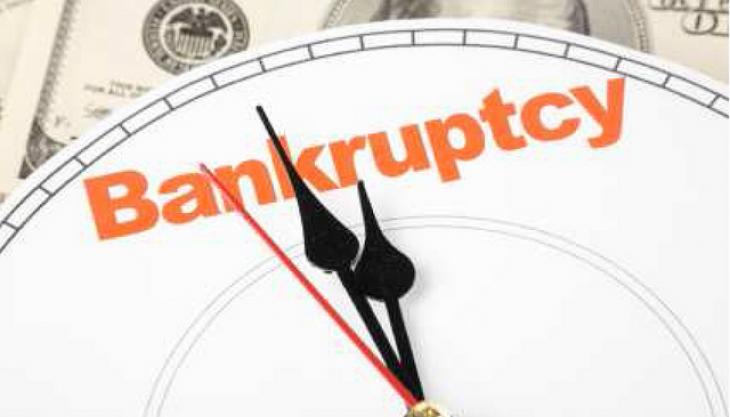Chapter 13, Chapter 7, and Chapter 11 – What’s the Difference and Which Should You File?
Submitted by Rachel R on Mon, 06/13/2016 - 10:36am

What are the different types of bankruptcy?
Image Source: Flickr CC User Alachua County
There’s been a lot of media attention on bankruptcy lately. Gawker filed after Hulk Hogan won a major verdict against the tabloid website. 50 Cent, aka Curtis Jackson, also filed bankruptcy after a court verdict went against him. Both Jackson and Gawker filed Chapter 11, but most consumers deal with Chapter 7 or Chapter 13. You may find yourself wondering what the difference is between these types
There are three kinds of bankruptcy most common in North Carolina – Chapter 13, Chapter 7 and Chapter 11. Here’s a look at how they're different.
What Is Chapter 11 and Who Uses It?
Chapter 11 bankruptcy is most often filed by businesses. However, individuals with excessive debt not covered by a Chapter 13 or those who need more time than the 60 months maximum repayment period of Chapter 13 may be allowed an exception.
Generally, though, Chapter 11 is filed by corporations, partnerships, and sole proprietorships. Even if you're a sole proprietor, a Chapter 13 may still be preferable unless your debts are into the millions or you have complex circumstances. Chapter 11 is a debt reorganization plan. It intends to get you back on track by working out a repayment plan with your creditors to allow you to get caught up while still keeping the doors of your business open. But many businesses don’t survive Chapter 11.
What Is Chapter 13 and Who Uses It?
Chapter 13 is similar to Chapter 11 in that it’s a debt reorganization plan, but it's intended for individuals and small business owners who are sole proprietors. This bankruptcy chapter gives you three to five years on a repayment plan to catch up on your debts.
On this plan, your past-due debt on secured loans (such as a mortgage or auto) must be caught up while you continue to make current payments on that debt. Unsecured debt such as credit cards and medical bills usually receive a portion of the balance due but are not typically paid in full.
Any remaining balances on unsecured debt at the end of the repayment plan are typically discharged. If you complete the plan, you should emerge current on your secured debt and discharged of much of your unsecured debt. However, the process can be rigorous to complete.
What Is Chapter 7 and Who Uses It?
Chapter 7 wipes out debt rather than buying time to deal with it. Chapter 7 allows you to protect a reasonable amount of assets. But a second home with equity, costly sports car, or other assets with lots of equity may have to be given up. Businesses can also file Chapter 7 to close up shop.
In North Carolina, $35k of equity in your home can be protected (or $70k if you file as a couple) so unless you have a TON of equity in your home, you’ll be okay. Clothing, furniture, and other household items are shielded unless you have heirlooms or valuable art.
Credit card debt, medical bills, and some back taxes can be fully eliminated. If you are upside down on your mortgage and want to unload the house and debt, Chapter 7 can help with that too. You may also be able to negotiate a lower payout on your car.
The bottom line is that bankruptcy can get you out of unmanageable debt in many cases. For some consumers, sucking it up, tightening the belt and dealing with debt themselves is the best route. But for others, this may not be enough and a debt intervention is necessary.
To find out more about North Carolina bankruptcy, contact the Law Offices of John T Orcutt. Call +1-833-627-0115 now for a free no-obligation consultation at one of our locations in Raleigh, Durham, Fayetteville, Wilson, Greensboro or Wilmington. Get the financial peace of mind you deserve!
Debts Hurt! Got debt? Need help? Get started below!
Serving All of North Carolina
- Bankruptcy Attorneys Raleigh NC (North)
- Bankruptcy Attorney Fayetteville NC
- Bankruptcy Attorney Durham NC
- Bankruptcy Attorneys Wilson NC
- Bankruptcy Attorneys Greensboro NC
- Bankruptcy Attorneys Southport NC
- Bankruptcy Attorneys Wilmington NC
Bankruptcy Attorneys Raleigh NC (North)
6616 Six Forks Rd #203 Raleigh, NC 27615 North Carolina
Tel: (919) 847-9750

Bankruptcy Attorney Fayetteville NC
2711 Breezewood Ave Fayetteville, NC 28303 North Carolina
Tel: (910) 323-2972

Bankruptcy Attorney Durham NC
1738 Hillandale Rd Suite D Durham, NC 27705 North Carolina
Tel: (919) 286-1695


Bankruptcy Attorneys Greensboro NC
2100 W Cornwallis Dr. STE O Greensboro, NC 27408 North Carolina
Tel: (336) 542-5993

Bankruptcy Attorneys Southport NC
116 N Howe St. Suite A Southport, NC 28461 North Carolina
Tel: (910) 218-8682

Bankruptcy Attorneys Wilmington NC
116 N. Howe Street, Suite A Southport, NC 28461 North Carolina
Tel: (910) 447-2987
